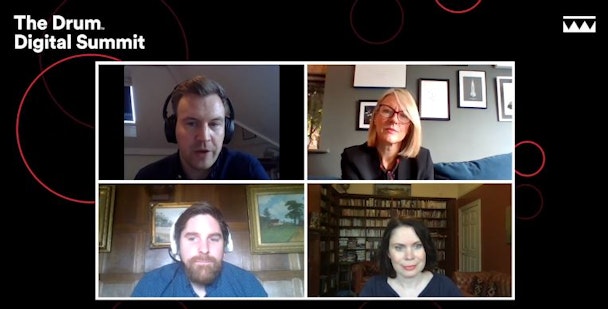How advertising can drive growth in the ‘new normal’
We may not like the term ‘the new normal’, but with exponential growth in internet use as a result of the pandemic (especially around connected television and mobile) and with the way our media consumption has been transformed in just a few short months, it is difficult to argue with the phrase. And its new accompanying buzzword appears to be ‘adaptability’.

Watch the panel now which explores how advertising can drive growth in the new normal
Today, 47% of households contain a connected television, and there has been a 30% increase in ad-funded streaming in 2020. The media world and advertisers are rushing headlong towards connected television (CTV) – a clear trend to emerge from the disruption caused by Covid-19. This was perhaps the clearest finding of the recent How Advertising Can Drive Growth In The New Normal panel that The Trade Desk sponsored at The Drum Digital Summit.
Watch the panel here.
Major global advertisers such as GSK and Shell almost immediately switched funds toward CTV and mobile at the expense of outdoor, out-of-home and cinema when the pandemic broke, according to Carolyn McKeever (global head of customer marketing media and CRM for Shell) and Dominic Barnard (programmatic media lead for GSK at Digitas). “Out was out, and it was suddenly all about the indoor media, which is why radio has thrived alongside CTV and social,” says McKeever, adding that Shell’s own channels – CRM, launch programmes and apps – have also proved vital.
Sarah Baumann, managing director of VaynerMedia, says she had banned ‘the new normal’ and other new clichés around the coronavirus subject. As campaigns were shelved, she says one of the agency’s new tasks – particularly for NatWest bank – was to relieve pressure on call centres by directing consumers through digital channels. This year’s brand message had to be about utility and service, she says. Adaptability was the biggest theme.
Shell, sadly, is about to go through a giant restructure, resulting in some job losses.. But people with adaptability, self-direction and a thirst for making big decisions quickly come to the fore, argues McKeever. This includes “making decisions on the fly”, which not everyone is comfortable with.
It is clear in this context that digital capabilities have to be a watchword for all staff. But there’s also a need for empathy, say the panel members. People’s lives have been turned upside down. This applies not only to consumers but staff too. Lots of younger employees are sitting at home in flatshares working on competing clients, talking on Zoom calls. The return to the office will not happen any time soon. In its place is a new onus on collaboration between data teams and creatives around the world. Virtual collaboration has replaced brainstorming in a room together.
As for consumers, 58% of Britons signed up to a new streaming service under lockdown. 47% of people would prefer to consume a streaming service if it was free or cheaper and supported by ads, according to research by The Trade Desk. “We’ve also seen a real increase in performance of CTV over linear,” says Barnard. CTV is booming. We have sped up the process of jumping into CTV that had begun before the pandemic.”
Other predictions for 2021 include a switch in digital out-of-home away from pedestrians and drivers towards people at home and, for example, at the supermarket. From the US, where CTV is booming, there is a new focus on test and learn, figuring out how to target better and not waste money.
The Trade Desk’s Patterson also suggests that the third-party cookie “may soon be off the table in favour of open-source AI solutions to tracking people”. Shell’s McKeever half-agrees: “There is probably 18 months worth of cookies left. So many attempts to improve the consent process had failed previously but, in lockdown, consumer behaviour has just changed and they needed to opt-in more and just accept everything. Shell is getting very high acceptance rates, but it’s not because of Shell.”
Shell, like others, will try over the next couple of years to obtain as much first-party data as possible. This, plus increased use of CRM with more people joining loyalty programmes, ultimately means consumers controlling their own data – which brings us back to CTV.
Empowerment and excitement are also in the air. There are no IPA papers for what is going on right now. It has never happened before. There is no blueprint other than test and learn. For many in advertising, embracing the new will be liberating.
Watch the fascinating panel here.
Content created with:

The Trade Desk
The Trade Desk™ is a global technology company that empowers buyers of advertising. Through its self-service, cloud-based platform, ad buyers can create, manage,...
Find out more